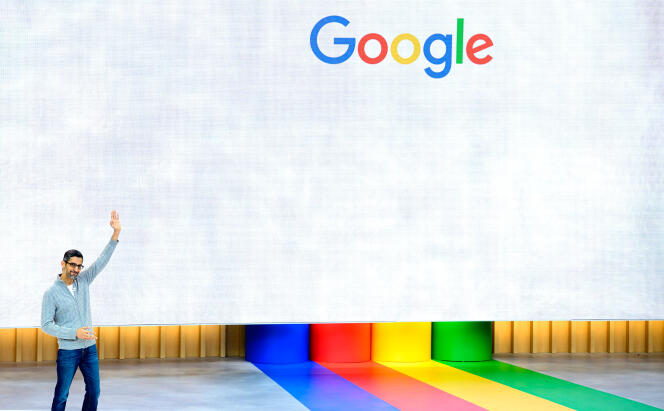
On Friday morning, June 2, Alphabet, Google's parent company, was holding its annual general meeting remotely. As usual, some shareholders prepared to call for greater transparency on the search engine's algorithms. Others prepared to challenge, without little hope for success, the voting rules that give the two founders the majority of rights despite owning only 12% of the capital.
CEO Sundar Pichai could be expected to listen with a distracted ear to these fighters for shareholder democracy, for his mind was elsewhere. He wanted to talk about artificial intelligence (AI). Pichai was preparing to reveal his company's response and the tremendous opportunities that the introduction of these intelligent functions to its search service will offer.
To catch up with Microsoft and ChatGPT, Alphabet decided in April to merge its two AI research entities – its own lab called Google Brain and the company it bought in 2014, DeepMind.
Countless potential competitors
Up to this point the London-based subsidiary DeepMind, founded and run by Demis Hassabis, has enjoyed carte blanche in research and funding. Independence is over, however, and merging with the Californians will not be easy even though Hassabis will head the new joint effort.
But the irruption of AI poses far greater challenges to Google and its competitors. The first is ethical. Like Dr. Victor Frankenstein in Mary Shelley's novel, the progenitors are suddenly afraid of their creature. Specialists around the world, including ChatGPT's creators and Pichai, are now warning of a high risk of manipulation and false information dissemination. The developers themselves are calling for AI to be regulated.
The second challenge is existential for Google. A recent anonymous memo from one of the firm's employees underlined the risk for their company, as for Microsoft, of the dissemination of AI manufacturing tools through open source. This would lead to the emergence of countless specialized and uncontrolled applications that would threaten the dominance of the American giants, notably that of Google's search engine. AI is a philosophical and economic storm with the makings of a revolution.